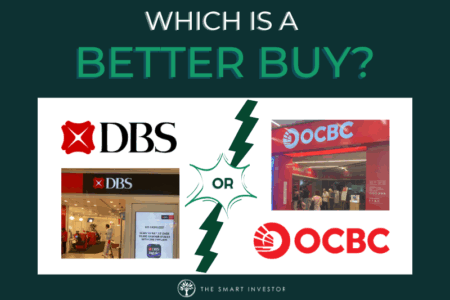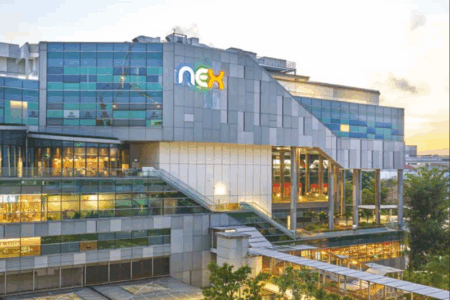While Wall Street fretted about Google losing the AI race to ChatGPT around three years ago, Alphabet (NASDAQ: GOOGL) quietly built something far more valuable: an empire worth US$3 trillion.
The search giant just became the fourth company to reach this milestone, joining Nvidia (NASDAQ: NVDA), Microsoft (NASDAQ: MSFT), and Apple (NASDAQ: AAPL) in tech’s most exclusive club.
Here’s how Google’s parent turned doubters into believers – and why the best may be yet to come.
Reason #1: The Invisible Empire Beneath Our Feet
Beneath the ocean floor lies Google’s secret weapon: 33 submarine cables spanning over two million miles of fibre, carrying the world’s searches, emails, and YouTube videos at the speed of light.
With another six cables in the works, Alphabet isn’t just using the internet – it’s building it.
From day one, Google built its own servers and datacentres, keeping this infrastructure arm one of the most secretive parts of its business.
Today, Alphabet ranks among the world’s largest manufacturers of data centres.
This massive infrastructure advantage keeps costs so low that Google can give away its software for free while competitors struggle to match its scale.
It’s an advantage that could extend into Generative AI.
The company offers the industry’s widest range of TPUs (Tensor Processing Units) and GPUs (Graphics Processing Units). Ironwood, its seventh-generation TPU, is the first designed specifically for inference at scale.
This infrastructure isn’t just big; it underpins everything the search giant does.
That’s why I made infrastructure the most important thing to know about the business during our May 2024 webinar.
Reason #2: Seven Giants and Counting
Forget unicorns. Alphabet breeds giants.
While most companies dream of reaching a billion users with a single product, Google has seven products with TWO billion users each: Android, Chrome, Gmail, Google Play, Google Search, YouTube, and Maps.
But wait, there’s more.
Another eight products – from Google Assistant and Google Calendar to Google Docs and Google Photos – each command over 500 million users.
Simply said, Google’s product breadth and scale are hard to match.
This isn’t just market dominance; it’s digital ubiquity.
Reason #3: The Greatest Comeback in AI?
While ChatGPT is grabbing the headlines, Alphabet slowly engineered one of tech’s most impressive comebacks.
After stumbling with Google Bard, the company roared back with Gemini, which this week topped iOS app downloads, surpassing ChatGPT itself.
Alphabet’s AI metrics tell the story: AI Overviews now reaches over two billion monthly users across 200+ countries, driving 10% more queries globally.
Nine million developers have built with Gemini, with its latest 2.5 models becoming a catalyst for growth.
The viral hits keep coming.
Veo 3, Google’s state-of-the-art video generation model, has generated over 70 million videos in less than two months. Meanwhile, Nano Banana is catching fire, adding more than 23 million first-time users to Gemini with over 500 million images generated in just two weeks.
This isn’t just catching up — Gemini may have taken the lead in images and videos.
Reason #4: The US$110 Billion Secret
Here’s a number that should make investors sit up: US$110 billion.
That’s the combined revenue run rate for just Cloud and YouTube – businesses that barely existed when Google went public.
Google Cloud alone generated US$49 billion in revenue over the past 12 months.
YouTube?
According to Nielsen’s The Gauge report, it’s been America’s number one streaming platform for over two years, capturing a record 12.8% of total TV viewing in June 2025.
The subscription business tells another growth story, surpassing 270 million paid subscriptions, with YouTube and Google One as key drivers.
While everyone watches search, these “other” businesses are quietly building empires of their own.
Reason #5: Playing the Infinite Game
As I wrote in The Business Times in February 2025, it’s too early to crown winners and losers in AI.
If history teaches us anything, we should accept that there are developments that cannot be known ahead of time.
The AI landscape is still being written.
Multiple winners may emerge, current front-runners could falter, and future winners may still be on the sidelines. But Alphabet has two crucial advantages: battle-tested infrastructure and the patience to play the long game.
Apple, Alphabet, Microsoft, and Nvidia didn’t become US$3 trillion companies overnight. The returns were delivered over many years, not months.
The US$3 trillion milestone isn’t just about what Alphabet has achieved – it’s a bet on what’s coming.
With infrastructure that spans oceans, products that touch billions daily, and an AI comeback that’s just getting started, Google’s parent might be teaching us the ultimate lesson: in tech, it’s not who moves first, but who endures longest.
For investors, patience isn’t just our ally. It’s our superpower.
Attention Growth Investors: Our latest report, “The Rise of Titans,” gives you a front-row seat on the 7 most influential US stocks today. If you’re passionate about tech and growth, you can’t go wrong with our research. Downloading this FREE report could be the most strategic move you make this year. Click here to get started now.
Follow us on Facebook, Instagram and Telegram for the latest investing news and analyses!
Disclosure: Chin Hui Leong owns shares of Alphabet (since 2011), Apple (since 2010), and Microsoft (since 2020).





